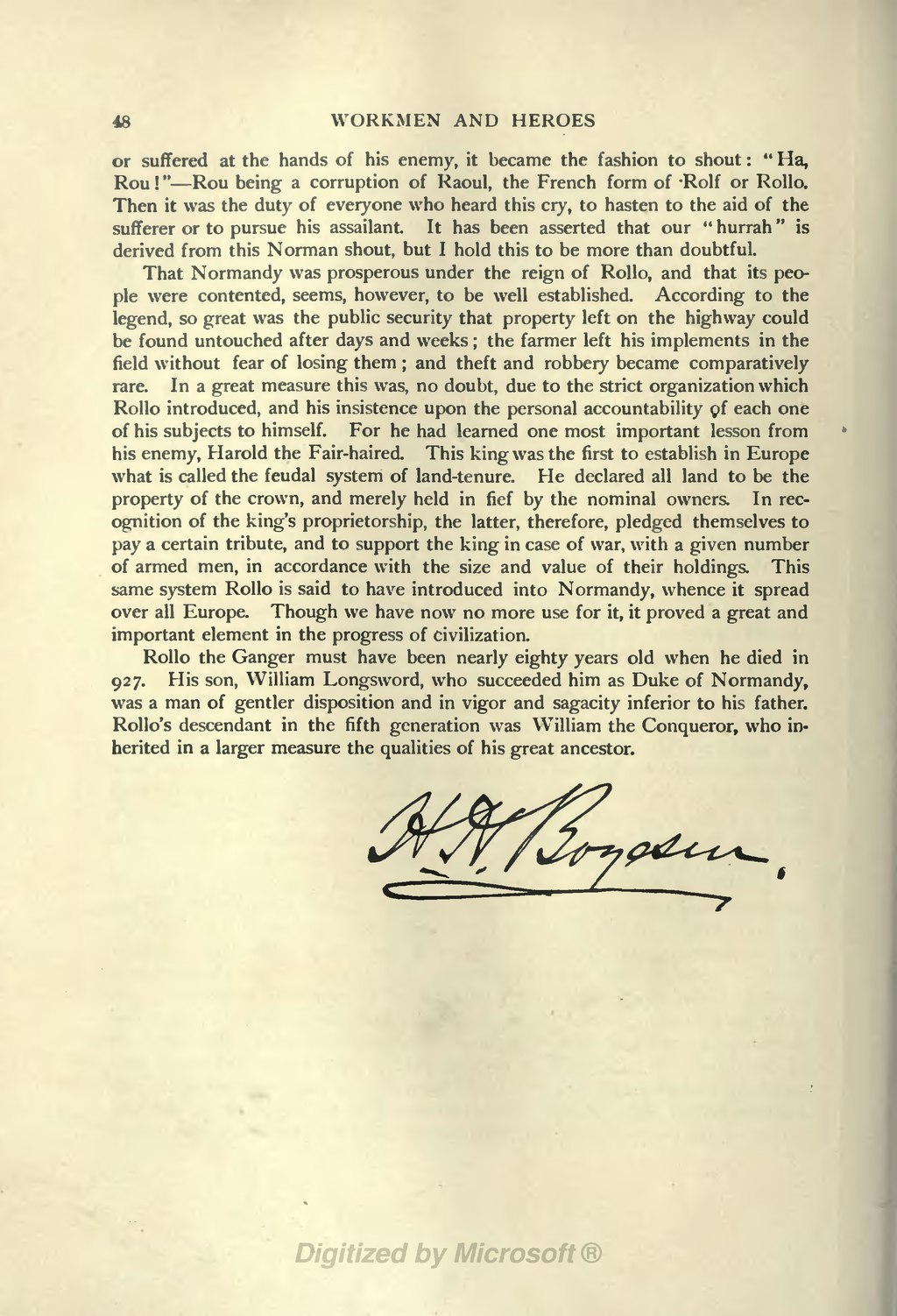48 WORKMEN AND HEROES or suffered at the hands of his enemy, it became the fashion to shout : " Ha, Rou ! "- Rou being a corruption of Raoul, the French form of -Rolf or Rollo. Then it was the duty of everyone who heard this cry, to hasten to the aid of the sufferer or to pursue his assailant. It has been asserted that our " hurrah " is derived from this Norman shout, but I hold this to be more than doubtful. That Normandy was prosperous under the reign of Rollo, and that its peo- ple were contented, seems, however, to be well established. According to the legend, so great was the public security that property left on the highway could be found untouched after days and weeks ; the farmer left his implements in the field without fear of losing them ; and theft and robbery became comparatively rare. In a great measure this was, no doubt, due to the strict organization which Rollo introduced, and his insistence upon the personal accountability 9f each one of his subjects to himself. For he had learned one most important lesson from his enemy, Harold the Fair-haired. This king was the first to establish in Europe what is called the feudal system of land-tenure. He declared all land to be the property of the crown, and merely held in fief by the nominal owners. In rec- ognition of the king's proprietorship, the latter, therefore, pledged themselves to pay a certain tribute, and to support the king in case of war, with a given number of armed men, in accordance with the size and value of their holdings. This same system Rollo is said to have introduced into Normandy, whence it spread over all Europe. Though we have now no more use for it, it proved a great and important element in the progress of civilization. Rollo the Ganger must have been nearly eighty years old when he died in 927. His son, William Longsword, who succeeded him as Duke of Normandy, was a man of gentler disposition and in vigor and sagacity inferior to his father. Rollo's descendant in the fifth generation was William the Conqueror, who in- herited in a larger measure the qualities of his great ancestor.
Page:Great Men and Famous Women Volume 5.djvu/86
This page needs to be proofread.
